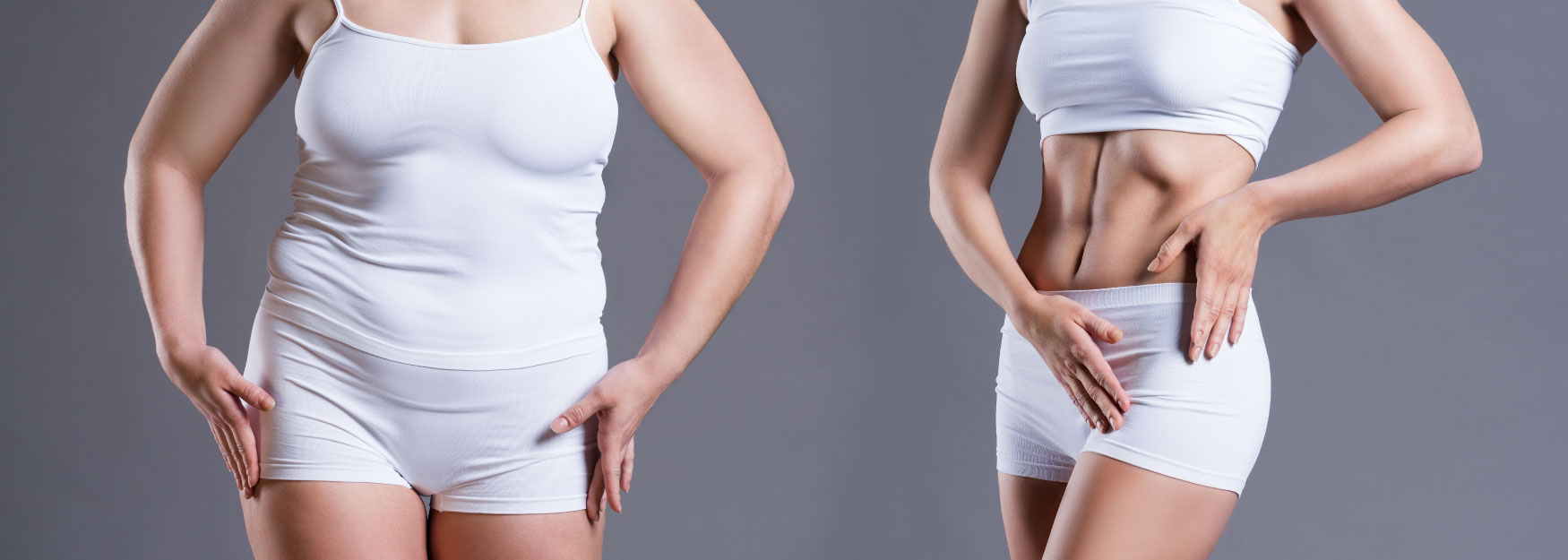
BHRC BLOG
What To Do To Lose Weight: Top Secrets To Shed Unwanted Pounds Fast, From The Experts
There’s no shortage of wonder pills and exclusive diets out there to lose weight, but what about focusing on the chemistry of your body? Find out how to optimize weight loss 24 hours a day…
One of the most sought-after questions in the universe is without a shadow of a doubt – what to do to lose weight? And while many companies promote certain pills with dubious effectiveness and safety records, most people are completely lost when it comes to losing body fat, or they are lead astray by misleading information.
For instance, physical exercises are often pointed at as the best method for getting rid of the unwanted weight, but researchers from the Progress in Cardiovascular Diseases journal came to a very intriguing conclusion – significant weight loss is unlikely to occur from a training program, unless it’s very intense and demanding.
And on top of that, these same scientists also found out that physical activity may promote very moderate weight loss (<2 kg) or even worse, there could be a complete absence of any weight reduction whatsoever.
Obviously, even the most effective weight loss exercise is only a small piece of the puzzle and it doesn’t guarantee any real results as scientific findings suggest.
Popular Weight Loss Techniques, and Where They Fall Short
For conventional weight loss, you can either restrict your caloric intake, increase your physical activity, or you can resort to hormone replacement therapy. And please keep in mind that you can’t spot reduce fat deposits by simply targeting certain muscle groups in the area that you want to “tone up” and get rid of the extra fat – if it was that simple, everyone would be doing it.
Now, as mentioned earlier, exercise as a stand-alone way for getting rid of the extra fat is far from optimal. Optimizing your diet is a much more logical approach, however, combining different aspects seems like a very good idea for what to do to lose weight.
A quick look at a scientific study organized by the Obesity Journal (Silver Spring. Md.) shows us the undeniable facts. They examined three test groups – one relying only on diet, a second one utilizing physical exercises and a third group that combined both means.
After 12 months, they evaluated the results, which were:
- Exercise group – lost 2.0 kg (-2.4%)
- Diet group – lost 7.2 kg (-8.5%)
- Diet + exercise group – lost 8.9 kg (-10.8%)
What they found is rock solid evidence that the combination of proper nutrition with exercise produces the greatest reduction in body weight. And once again, simply adding physical activity to your daily routine would be far from enough, as the insignificant 2.4% weight loss from the aforementioned study indicates.
Adequate nutrition (or diet) on the other hand is the real culprit for many. It’s clearly more potent for fat loss when compared to working out and simply reducing the amount of calories you consume each day makes for a great start towards a weight loss plan.
Some common advice that many of you may or may not know related to diet and weight loss includes:
- Limit the consumption of unprocessed foods
- Say no to all kinds of simple carbohydrates (sugar, fruit juice, sweets etc.)
- Eat more frequently but in smaller portions
- Drink some water half an hour before a meal
The last part about consuming water prior to eating (about 30 minutes before) is very intriguing actually. Scientific data that backs such claims comes from the Department of Human Nutrition, Foods and Exercise and their findings were astonishing, to say the least.
In short, the test group that drank 500 ml of water prior to having a meal showed a whopping 44% increase in weight loss compared to the other “non-water” group, over the course of 12 weeks. Still, simply relying on additional water consumption prior to eating won’t give you the desired results concerning fat loss.
Weight Loss Supplements – Does the Elusive ‘Fat Loss’ Magic Pill Exist?
Not really. If there was a so-called ‘miracle pill’, you would’ve known about it already.
Supplements, as the name suggest are nothing more than an addition to something, be it your diet, exercise regime or lifestyle.
It’s easy to fall into the trap of smart marketing when it comes to dietary supplements as an answer for what to do to lose weight, especially in today’s day and age since the supplement industry is booming. However, keep in mind that concrete scientific data concerning the potential effectiveness of supplements designed to burn fat (fat burners), doesn’t really exist at the moment.
The closest evidence to their supposed potency has been observed by researchers from the Obesity Journal in 2010. They examined CLA (conjugated linoleic acid), pyruvate and Irvingia gabonensis, which might have some potential benefits when it comes to losing weight, but nothing factual. At the end they just concluded that there’s a dire need for more data and continued research in order to determine whether or not supplements can aid fat loss.
On the contrary, the World Journal of Gastroenterology sounded the alarm in 2009 with a study that highlights the increasing number of reports about hepatotoxicity related to a well-known, so-called fat burner that contains a botanical component called Garcinia Cambogia.
They’re concerns are that there’s not enough regulation regarding the manufacturing processes of not only weight loss supplements, but supplements in general and this leads to such reports about harmful substances. So it’s safe to say that supplements are not based on scientific facts, but merely theoretical principles.
And this brings us to another way for losing weight, that we mentioned earlier – hormone replacement therapy. Now we’re going to have a look at this, probably lesser known, but nonetheless very potent method for shedding the extra pounds.
Hormone Replacement Therapy for Weight Loss – The Secret to Lasting Results
If you’re wondering what to do to lose weight fast, without exercise or diet, then the following piece of information is exactly what you’ve been looking for.
There’s a study from 1999 conducted by the Maturitas Journal observed 21 obese menopausal women in total, and 12 of them were treated with HRT. They discovered an undeniable relation between hormone therapy and weight loss.
After 3 months the substituted group (the 12 women on HRT) experienced a fat loss of 2.1 kg (+/- 0.2) and not only that but they also observed a decrease in the waist to hip ratio of the ladies treated with HT. While the body weight of other group consisting of 9 women remained pretty much the same for the same three-month period.
Eventually these scientists concluded that combined HRT doesn’t just prevent the infamous weight gain associated with hormone therapy treatment, this method actually revs up lipid oxidation and subsequently increases the loss of unwanted weight. Besides that, HRT managed to positively affect the insulin response, plasma lipids and energy expenditure of the test subjects.
But Doesn’t HRT Make Me Gain Weight?
Not really. Although many believe that hormone therapy does cause weight gain because of the supposed effects that HRT has on leptin levels.
But this has already been debunked in 2014 by a group of researchers. They focused their efforts on searching for relevant literature and studies about estrogen and its supposed effects on serum leptin concentrations and adiposity in females. In their search of what to do to lose weight, they couldn’t find any consistent effect of exogenous estrogen on leptin, adiposity and ultimately – weight gain.
They even acknowledged the fact that some medical research that used animals as test subjects did hint at the supposed connected between weight gain and HRT. Yet, their research clearly showed that there’s no compelling evidence that estrogen therapy does indeed cause women to gain extra pounds.
And that’s not the only scientific data in HRT’s defense. Back in 2000 the University Hospital of Utrecht examined whether or not hormone therapy can be associated with an increase in one’s weight. The scientists there concluded the obvious – HRT isn’t responsible for weight gain.
Quite the opposite actually. Certain hormone therapy regimes such as Femoston can be very beneficial to women in menopause. They can halt a supposed elevation in body fat and fat redistribution.
What To Do To Lose Weight? Consider Balancing Your Hormones!
Since weight loss is such a hot topic, there are literally thousands of supposedly effective approaches online. But the scientific evidence demonstrates that only a few of them are actually trustworthy and can truly help you get rid of the excessive inches.
Hormone replacement therapy is undoubtedly among the top choices when it comes to fat loss and as pointed out earlier in the post, it’s backed by science. It’s not a nutritional plan, nor is it a workout program – it’s much more convenient and above all, it has proven to be effective at putting a stop to weight gain in addition to aiding the loss of unwanted weight.
And that’s why at Beverly Hills Rejuvenation Center are proud to inform you that we offer modern, cutting edge HRT methods, because we care about your hormonal balance and your weight loss goals.
Make sure to check out our Hormone Replacement Therapy page for more info on what we have in store for you, and also if you have any additional questions or if you want to book a free consultation, please don’t hesitate to give us a call at 888-612-0120!
BHRC Hormone Replacement Therapy Locations:
References:
An Evidence-Based Review of Fat Modifying Supplemental Weight Loss Products
Beneficial effect of hormone replacement therapy on weight loss in obese menopausal women






